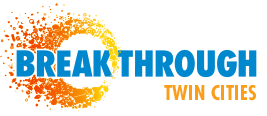Xia Neng Xiong’s Booyah Bash Speech 2018

At the age of four, I immigrated to America from Thailand with my family. Although I was surrounded and supported by my loving family as a young child, I spoke only Hmong at home – and still do. Even so, I knew from that young age that my parents’ goal for me was to attend and graduate from college. Although they did not really know what college was or what it meant to go there, they had been told that college was crucial to achieving success in America. And they had come to America so that my siblings and I could succeed.
It was when I started school that I began to notice how different I was from the majority of white students around me. Most obviously, I spoke no English – although I quickly learned this new language. Also, it took time for me to understand many of the cultural norms for school behavior, like how to ask to go to the restroom. But hardest of all in elementary school was the loneliness I felt. I was an ambitious student whose parents insisted on success – but I found myself surrounded by many peers who did not seem to care about school at all. I felt isolated, alone, shy, and different.
But then came Breakthrough, and it changed my attitude toward learning, toward how I saw my future and especially how I saw myself. At Breakthrough, I was surrounded by other students who were just like me: motivated students who loved learning and wanted to support me. I gradually realized that I was no longer alone. The diverse Breakthrough community fostered my confidence in my ability to express my thoughts. It not only helped me break out of my shell, but it taught me what college really meant – why I wanted desperately to go; what to do to prepare; how to think about my future. Breakthrough enabled me to become an ambitious and determined student.
Breakthrough also helped me cultivate the personal qualities that would ensure my success. Qualities like perseverance, listening, curiosity, the value of hard work with equally ambitious peers. Instead of the shy, quiet student I had been, I learned to be comfortable with discomfort, to take risks. Before Breakthrough, I would never have spoken in front of anyone. After Breakthrough, I not only spoke, but sang, danced, and acted in front of 150 people. I found that I loved learning; I loved school; I loved my cohort; and I loved Breakthrough.
However, as I progressed through advanced and college classes in high school, I found myself retreating from my earlier exuberance. The higher the level of a course, it seemed that the lower the number of people of color was. Just as in elementary school, my confidence and curiosity began to seep away as I felt increasingly isolated. One day in English class, the teacher announced that we were going to discuss race. The first question was “What does ‘whiteness’ mean to you?” Most of the other (white) students had lots to say, but I was paralyzed by how to respond. So I said nothing. Had I been asked, I would have said, “Whiteness means the 1%, privilege, exclusivity.” But instead I remained silent and alone.
But, once again, Breakthrough came to my rescue. After all, I had learned to be comfortable with discomfort, to question, to express my opinions. Now, in advanced classes, I am gradually applying those earlier lessons in the increasingly rarified, non-diverse surroundings I find myself in. Even without my Breakthrough cohort with me, I am capable of speaking up and speaking out.
Now I am headed to St. Olaf College in the fall on a full scholarship. My grateful thanks go to Breakthrough and all of you who support this program – a program that can awaken a shy Hmong immigrant and transform her into an ambitious, aware scholar. Please know that your support has given me a future I never dreamed could really be mine.

